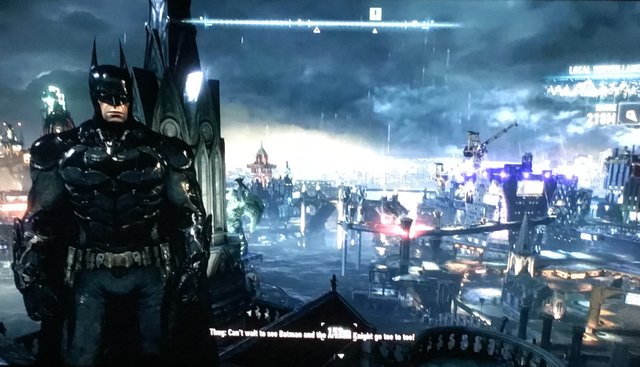What Videogames Teach Us Abour Work 1.5
WHAT VIDEOGAMES TEACH US ABOUT WORK 1.5
A while ago, an article was written for i newspaper by Will Tanner, in which it was reported that a Universal Basic Income experiment was ended because “ministers refused to extend its funding amidst concern that young teenagers would stay at home and play computer games instead of looking for work”.
That argument had a tone that is sadly familiar, depicting videogaming as an addictive evil that distracts its victims from what they ought to be doing (ie going out job-seeking). But I think it would be more accurate to say that gamers have already found meaningful work and are reluctant to forsake it and submit to less rewarding labour instead.
This way of looking at it goes largely unrecognised because we are not taught to equate videogaming with work. Instead, you ‘play’ a videogame and we are raised to believe that play is childish, a distraction, mere fun. Play, we are encouraged to believe, is the opposite of work.
But it really isn’t. One only has to look at the play other animals engage in to see there is a serious side to it. It’s a way of honing skills that will become essential in later life.
Similarly, in videogaming we find many activities that can be seen to hone skills that are important in this digital age we live in. Authors Bryon Reeves and J. Leighton Read list over a hundred such activities, including:
“Getting information: Observing, receiving and otherwise obtaining information from all relevant sources.
Identifying information by categorising, estimating, recognising differences or similarities and detecting changes in circumstances and events.
Estimating sizes, distances and quantities or determining time, cost, resources, or materials needed to perform a work activity.
Thinking creatively: developing, designing or creating new applications, ideas, relationships, systems or products, including artistic contributions”.
Also, in an article written for ‘Wired’ (“You Play World of Warcraft? You’re Hired!”) John Seely and Douglas Thomas explain how “the process of becoming an effective guildmaster amounts to a total-immersion course in leadership...to run a large one, a guild master must be adept at many skills: attracting, evaluating and recruiting new members; creating apprenticeship programs; executing group strategy...these conditions provide realworld training a manager can apply directly in the workplace”.
Far from being a distraction from work, videogames are, along with jobs, one of modern life’s two main work providers. Instead of lending support to the idea that people don’t want to work, videogames demonstrate how eager we are to engage in productive activity, to reach for goals, to solve problems and to take part in collaborative projects.
A recent addition to the videogaming world clearly demonstrates how much we like to work. The game I have in mind is ‘Death Stranding’. Before it was released, the game was promoted via a series of highly enigmatic films made using the game’s graphic engine. Nobody could figure out quite what the actual gameplay would entail. Now that it is available to play we understand what it is that you do in ‘Death Stranding’. The player takes on the role of Sam Bridges, and they have to carry packages on their avatar’s back and transport them safely to distant locations.
In other words, in Death Stranding you do the job of a parcel delivery guy.

(Image from Konami)
Now, this raises a question: How come one work provider (videogame companies) is able to draw upon willing and eager volunteers, while the other (jobs) mostly creates a feeling that work is a necessary evil you wouldn’t do if you had a choice? (Polls consistently show most people hate their jobs). I mean, just think about what Death Stranding mostly has its players doing, which is parcel delivery work. I’m not saying everybody loves the game. In fact, quite a few have had negative things to say about it. But what is remarkable is that its creator, Hideo Kojima, even entertained the thought that people would want to pay good money to be able to do delivery work. If Death Stranding’s main inworld task were a real job I doubt many people would be willing to do it for free let alone pay to be able to do it.
Fundamentally, I think it all has to do with the direction in which money flows, and how that affects the design of work in videogames and jobs.
What do I mean by the direction in which money flows? Quite simply, I mean that if you have a job, then, assuming you are not an unpaid intern, a company will be paying you to work. This means that you are both an investment and a cost. On the other hand, when it comes to videogames, you pay a company to work, since you have to first purchase the game (and even if it is free-to-play like Fortnite, the company will have some means of extracting money from you). This means that you represent almost all profit, and only negligible cost.
Because videogame publishers want as many people to spend money on their games as possible, it obviously makes sense if working in a gaming context is as enjoyable and rewarding as it can be. When I say ‘rewarding’ I don’t just mean in the sense it pays good money. Rather, I mean in the sense that one would gain satisfaction from the work even without monetary compensation. Obviously, if we only felt rewarded by work if there was monetary return attached to it, we would not seek hobbies or engage in sport or play videogames (well, professional sportsmen and e-sports pros would but the vast majority of us would not).
When it comes to making work engaging, productive activity should provide opportunity to pursue mastery; it should offer autonomy, flexibility, judgement and creativity that is firmly in the hands of the individual doing the actual work.
The best videogames are great at providing all these conditions. Autonomy and flexibility are found in games where you don’t have to tackle challenges in a strictly linear fashion but can forge your own path instead. For example, in ‘Batman: Arkham Knight’ you, as the Caped Crusader, are free to roam Gotham City, swooping down to fight crime as and when you find it. If you hear an alarm ringing, you can locate its source and do a sub-mission involving a bank robbery. If you see smoke you can attempt to arrest Firefly. Exactly how you get to the game’s finale is entirely up to you.

(Image from Rockstar Games)
Many games offer creativity, providing opportunities to customise the look of your character or items you have acquired. Some games come with comprehensive editing tools that offer even more scope for creative expression, such as ‘LittleBigPlanet’ which goes as far as enabling players to create whole new games. And since their very inception, videogames have given us the chance to exercise our judgement and gain mastery, as we make the snap decisions required to advance up the high-score charts, helped by well-crafted feedback systems that informs us when we are doing well and when we should try alternative strategies.
Along with those aforementioned qualities, there is something else work should provide if we are to feel satisfaction from doing it. We like to feel as though our work contributes something valuable to society, such that when people ask ‘and what is it that you do?’, they act with approval when learning our job title, knowing that kind of work makes a positive contribution to the lives of others.
Where videogames are concerned this meaning is provided by the overall narrative. If we take Death Stranding once again as an example, although your tasks within the game involve parcel delivery, overall your quest is to build an infrastructure and communications network that will reunite a broken America. Most games with cinematic pretensions have overarching goals similarly epic in scale, asking the player to ‘save the world’. Of course, you can only hope to achieve such grand quests inworld and outside of the gaming context it’s only pretend. But, as anyone who has found themselves emotionally invested in a book or film will know, we can get deeply into worlds of our imagination.

(Creating your own world. ‘LittleBigPlanet3’. Image from Media Molecule)
Now what about jobs? It’s true that jobs may also provide the things that make work worthwhile. But, the crucial difference is that, where videogames are concerned, there is never a good reason to try and reduce or eliminate such qualities. Doing so would only make for a bad game that nobody would choose to play. There is, however, a reason why employers might want to reduce such qualities in a job.
If you look back over the list of qualities that make work rewarding (creativity, judgement, mastery, autonomy and flexibility) you may notice that they all have something in common, which is that is that they all help to enhance our individuality. It makes sense if you think about it. We are all unique individuals who would prefer to engage in work tailor-made to suit our individual skills, tastes and lifestyles. The ideal job varies from person to person but could be summed up as work that is tailor-made to suit that individual and which makes an important contribution to society.
But when we combine tailor-made work designed to suit the individual with a job that is of great importance to society we have a potentially troublesome combination. What happens if that individual gets run over by a bus? Who else is going to be able to occupy that position if it was uniquely suited to an individual? Obviously this is not much of a problem in videogames since, after all, it is only pretend. But real jobs in the real world that are important to society would suffer real consequences if some vital and irreplaceable member were to suddenly become unavailable.
We can see, then, why businesses might be motivated to reduce the creativity, judgement, and autonomy etc required of the employee. The more you are able to do this, the more you can treat people less like individuals and more like interchangeable units that can be replaced at as short a notice as possible. This actually has two benefits for the employer, because not only does it ensure you can quickly replace staff when a position needs filling, it also reduces the bargaining power of the workforce, since you are less likely to complain about pay and working conditions if you know it won’t be too difficult for the boss to fire and replace you.
The result? A cheaper workforce, more value extracted from the commodity of labour-power, and more profit for those the labourers work for. You have to bear in mind that employees are quite low down in the pecking order for rewards from the labour process. Governments want their cut, banks and financial services want their cut, the company executives want their cut, and they take priority over the working classes, kind of like how the more powerful predators and scavengers get the juicy meat and leave only scraps for the rest to fight over. When it comes to the pursuit of more profit, it pays to make work as unrewarding (in a monetary sense) as you can get away with, which often results in work being designed to be as unrewarding (in the sense of not being engaging) as possible.
“But why would people choose to do work designed to be lacking the very qualities that make it engaging?”, you might be asking. The answer can be found in ‘negative motivation’. Being without a job can have serious consequences. Cut off from an income, bills cannot be paid and the threat of rough sleeping looms ever closer. On top of that there is cultural pressure to ‘get a job’, so much so that we don’t care if the job is useless or even harmful to society (‘at least s/he has a job’). This all amounts to enormous pressure to submit to employment, not really because of the gains people expect if they do have a job, but rather because of the punishment they dread if they don’t.
Videogame companies, on the other hand, cannot rely on negative motivation for the simple fact that hardly anyone can be forced to play games (I say hardly anyone, because there are sweatshops in which people grind through MMORPGS to level up characters that can be sold on to richer customers). This further emphasises the point that videogames never have an incentive to make work less rewarding, whereas such incentives do exist in the world of jobs.
CONCLUSION
Videogames, far from demonstrating our distaste for work, in fact show how willing and eager to work we are. So willing, in fact, that our desire to work supports one of the most successful industries of the modern age. Every day, millions of us spend billions all so we can engage in the work videogaming requires. If we really hated work, the first person to put a quarter into the first arcade game would have walked away in disgust at having to pay to stand there and perform repetitive manual labour. What, are you crazy?
What videogaming shows instead is that if you can take that simple mechanical operation and craft around it creativity, flexibility, autonomy, judgement and mastery, the result is work that people want to do so much they will gladly pay for it. But if, in the interest of extracting more value for money out of your workforce, you reduce or eliminate such qualities, people will hate such work and will only submit to it if circumstances force them.
That’s what jobs teach us.
REFERENCES
‘Wired’
‘Total Engagement’ by Bryon Reeves and J. Leighton Read.
‘Why We Work’ by Barry Schwartz.